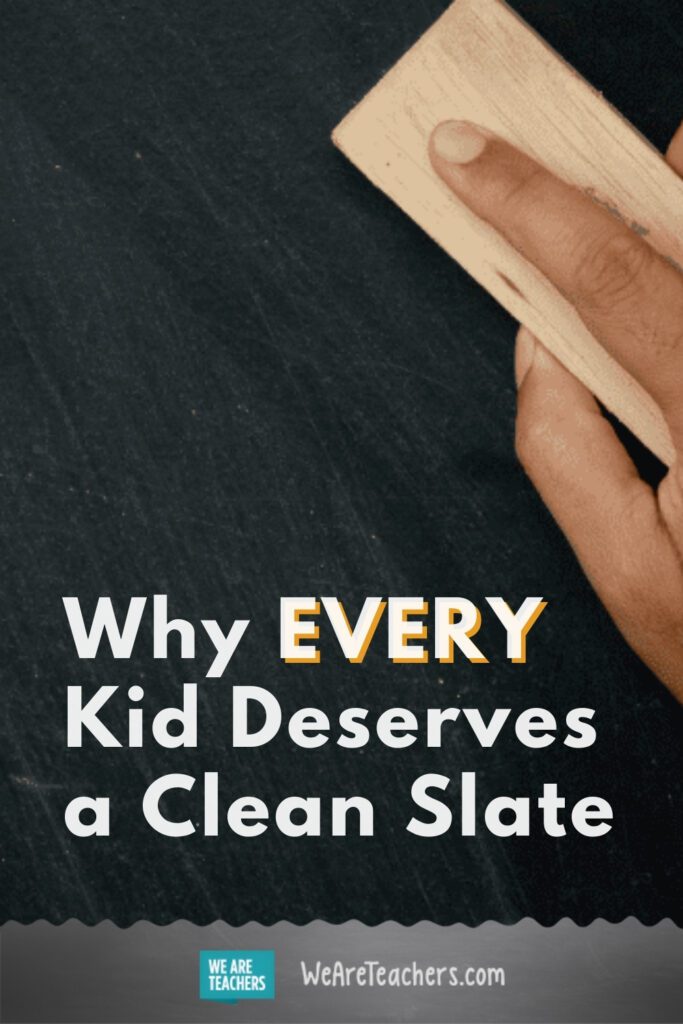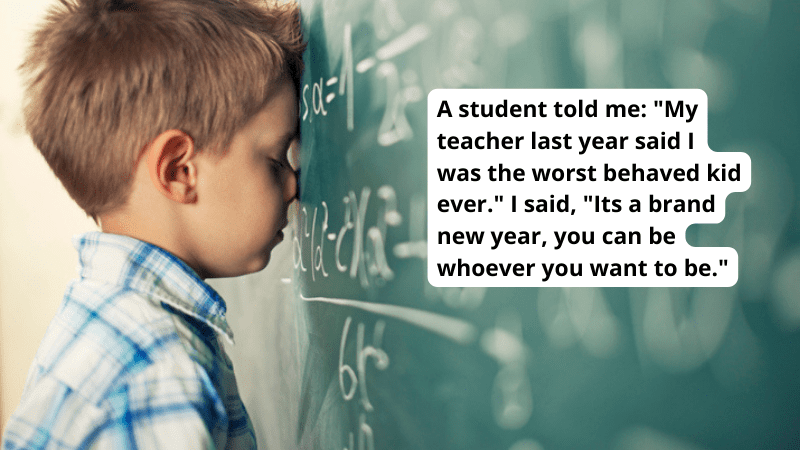My father was a … rambunctious student. Very smart and frequently bored, he would pull pranks and create situations to make his tedious school days pass a bit more quickly. Locking the briefcase of his English teacher with a paperclip resulted in his name echoing in the hallways when said briefcase continued to burst open at the most inopportune times. When told that if his Western Civ class bored him, he was welcome to leave, he took the teacher up on the opportunity and walked out of class. I won’t even get into the details of the cherry cobbler war that he started in the cafeteria in an attempt to thwart a bully. Or the time he sent a spider in a note during Algebra that resulted in his removal from the class for the rest of the year. While these shenanigans delighted his friends and classmates, his teachers had less than favorable responses.
Years and years later, my brother and I paid the price for my father’s antics.
During attendance on my first day of high school, the aforementioned Western Civ teacher came to my name and suddenly made a face. “Who do YOU belong to?” he demanded. When I revealed my parentage, his response was a combination of a sneer and an eye roll. I spent the rest of the year desperately trying to fly under the radar, anxiously afraid of being taunted about the behavior of my bloodline. Four years after this incident, my brother entered the same school. The Western Civ teacher had since retired, but the inquiry inevitably came, this time from his Geometry teacher. “Who is your father?” he demanded. When my brother answered, his teacher pointed to the sole desk at the back of the room. “OK then, you sit over there.”
While these stories are something that, as a family, we laugh about now and tease my father for his past bad behaviors, the experiences themselves caused much anxiety and angst for my brother and I and could have potentially skewed our high school experience. Despite all of our accomplishments (honor roll, photo editor of the school newspaper, sports), the “tarnish” of our family name still held weight with some of the veteran teachers.
[contextly_auto_sidebar]
In schools across the country, teachers are beginning to receive their class lists for the brand new school year.
Recognition of names and the recollection of siblings (or parents) will begin to surface. Teams of teachers will meet, trading both lists and stories. While these sessions can provide invaluable insight as to what learning, behavioral, or motivational strategies work best with students, often they also provide the opportunity for pre-conceived notions to arise. These snap judgments develop not only from familial connections but also from the interactions that students may have had with their previous teachers.
I keenly remember a particular young man who entered my class at the beginning of eighth grade. As I welcomed him into the room, he turned to me with a smirk on his face and said, “I bet you already know all about me. I got 45 pink slips last year. I bet I’m the worst kid you’ve ever had in your room.” Looking him in the eyes, I shrugged and said, “I don’t know anything about your seventh grade antics. And you know what? I don’t really care! You’re in eighth grade now. And you are an important part of this class. We’re going to have a great year.” And we did. He learned my expectations, and I learned the approaches that worked best for him. Imagine how differently that might have turned out if I had used his previous conflicts with teachers to skew my view of this child.
This year students deserve more than ever to come into our classrooms with a clean slate free of assumptions or presumptions.
After a year that not only changed how we “do” school (Can you hear the terms remote, hybrid or concurrent learning without shuddering yet?), but also provided an immense amount of uncertainty and instability, our students deserve a chance to discover who they are again as students and as a part of a classroom community. As we greet this year’s crop of fresh new faces, instead of focusing on their difficulty completing homework or rehashing their inability to turn on their cameras during remote learning, let us learn about their strengths and unique abilities. Let us forge connections and relationships built on conversation and understanding. And most importantly, let us help our students show us who they can truly become.
How do you start the year with a clean slate for students? Please share in the comments!
Plus, for more stories like this, be sure to subscribe to our newsletters.

